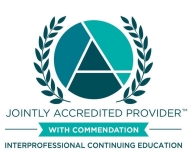
Emergency Dept. Transition in Practice_Live - Cohort 23.11
This is an intensive program focusing on patient presentations and critical situations (red flag scenarios) common to the emergency department (ED). Based on adult learning theory principles, the program will offer multiple modalities of instruction: self-directed learning activities, didactics, case studies, role playing, discussion and reflection, skills practice, simulation, and problem solving. Participants will spend a total of 92 hours to accomplish specific objectives, followed by formal debriefing each day to enhance the learning process.
Target Audience
Registered Nurses Transitioning to Emergency Department
Learning Objectives
After Attending This Activity Learners Should Be Able To:
1. Explain the five acuity levels used in the Emergency Severity Index (ESI) scale.
2. Verbalize three resources using the ESI scale.
3. Explain three red flag exposures for an accidental or intentional overdose.
4. Verbalize techniques to prevent an anxious person from becoming agitated.
5. Demonstrate the "SAD PERSONS" assessment scale for patients.
6. Compare and contrast multiple complaints of abdominal pain.
7. Differentiate between upper and lower GI bleeds.
8. Discuss interview techniques for a patient with a gynecological complaint.
9. Summarize patient assessments, diagnostic studies, and management priorities for patients with hematologic emergencies in the ED.
10. Identify nursing and care management for the Diabetic ketoacidosis patient.
11. Verbalize three interventions needed for a patient with dehydration.
12. Explain how to interpret blood gas results for acid-base and oxygenation abnormalities.
13. Explain the required equipment, supplies, and medications needed for a rapid sequence intubation.
14. Identify plan of care in patient with cardiac arrest, summarize heart failure, define and explain chest pain protocol, and identify common complications for a patient with a STEMI and how to manage the complications.
15. Formulate a plan of care for a patient with a spinal injury.
16. Explain red flag presentations that require immediate interventions for neurological disorders.
17. Discuss the treatment needed for a patient with ear, nose, throat, and dental emergencies.
18. Explain obstetric emergencies/ interventions for prolapsed cord, post partum hemorrhage, pre-eclampsia, miscarriage, placenta previa, and placenta abruptio.
19. Verbalize guidelines for conducting a physical examination on pediatric patients in the ED.
20. Recognize, assess, and prioritize nursing care and interventions for pediatric patients in respiratory distress, gastroenteritis, and dehydration.
21. Verbalize signs and symptoms of child abuse.
22. Discuss common types of shock seen in the ED and the appropriate interventions and treatment.
23. Identify five dysrhythmias and the treatments.
24. Verbalize how to prioritize the care of a septic patient.
25. Identify ECGs and treatment per ACLS protocol.
26. Explain how to prioritize the care of a patient with an inhalation injury/burn.
27. Discuss three clues that indicate a patient could be experiencing abuse.
28. Identify the primary and secondary assessments in a trauma patient.
Culturally Appropriate Care which is Free of Implicit Biases (AB 1195 & 241):
- Axelson, D. Stull, M., & Coates, W. (2018). Social determinants of health: A missing link in emergency medicine training. AEM Education and Training: A Global Journal of Emergency Care; 2(1): 66-68. Doi: 10.1002/aet2.10056. https://www.ncbi.nlm.nih.gov/pmc/articles/PMC6001589/
- Wallace, A., Luther, B., Guo, J., Wang, C., Sisler, S., & Wong, B. (2020). Implementing a social determinants of health screening and referral infrastructure during routine emergency department visits, Utah, 2017-2018. Preventing Chronic Disease; 17. Doi: 10.5888/pcd17.190339. https://www.cdc.gov/pcd/issues/2020/19_0339.htm
- Alspach, J.G. (2018). Implicit Bias in Patient Care: An Endemic Blight on Quality Care. Critical Care Nurse. https://aacnjournals.org/ccnonline/article/38/4/12/3698/Implicit-Bias-in-Patient-Care-An-Endemic-Blight-on
- Jin, R.O. et al. (2021). Exploring bias in restraint use: Four strategies to mitigate bias in the care of the agitated patient in the emergency department. Academic Emergency Medicine. https://onlinelibrary.wiley.com/doi/abs/10.1111/acem.14277

Disclosure of Financial or In-Kind Commercial Support & Conflict of Interest
No one involved in the planning or presentation of this educational activity have any relevant financial relationship(s) to disclose with ineligible companies whose primary business is producing, marketing, selling, re-selling, or distributing healthcare products used by or on patients. No financial or in-kind commercial support was received to produce or promote this educational activity. – Provider Designee/Verification: Kerri Maya, MSL, RN
Accreditation

In support of improving patient care, Sutter Health, is jointly accredited by the Accreditation Council for Continuing Medical Education (ACCME), the Accreditation Council for Pharmacy Education (ACPE), and the American Nurses Credentialing Center (ANCC), to provide continuing education for the healthcare team.
Credit Designation Statement
Sutter Health designates this LIVE activity for a maximum of 76.0 AMA PRA Category 1 Credits™ for non-physicians and 76.0 continuing professional development contact hours for nurses. Learners should claim only the credit commensurate with the extent of their participation in the activity.
Attendance & Credit Claiming
Text the 6-letter attendance verification code to (916) 866-7913 to claim credit.

 Facebook
Facebook X
X LinkedIn
LinkedIn Forward
Forward